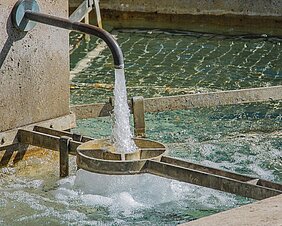Regional temporary shortages and climate impact assessments are making it increasingly clear that local to supraregional adaptation strategies are necessary for water supply. The ResilJetzt! project therefore examined the status quo and identified resilience options for adapting water supply to challenges such as those posed by climate change.
Today, there are already areas at risk of regional and temporary shortages in the German water supply. Therefore, the issue of resilience in water supply is gaining increasing attention among the public, politicians and experts. Climate change projections on water resource availability and multi-sectoral water demand scenarios for Germany (WatDEMAND project, part of the DVGW research programme ‘Future Water’) provide insights into how water supply and demand will develop under changing climatic conditions in the near and distant future. The conclusions of the DVGW's climate impact assessment make it clear that local to supraregional adaptation paths will be necessary in water management infrastructure and at the organisational level.
In the ResilJetzt! project (funded by the DVGW Future Programme Water, TP2 – Climate Change and Extreme Events), resilience options for adapting public water supply were developed in the form of factsheets. These are intended to support public water supply stakeholders by providing inspiration and decision-making assistance while searching for suitable measures. In addition, an infrastructure map of Germany was developed, documenting the status quo of the major infrastructure elements of public water supply. Since every federal state now has a water supply concept or is in the process of developing one, the state water supply concepts available to the project were analysed in terms of their origin, methodology and focus of measures.
In order to make the results as applicable as possible in practice, regional workshops were held with various water supply companies and their regions. Great importance was attached to ensuring that the workshop partners covered a broad spectrum of water resources, topographical and structural conditions, and challenges. This guaranteed that options for action for as many different conditions as possible were included in the results.
The final report is available in the DVGW member area, and the factsheets can be accessed here (in German).

![[Translate to English:] Prüfstelle-Produktprüfung_Teststand Test centre and product testing](/fileadmin/_processed_/0/9/csm_TZW-Karlsruhe_Pruefung_Geraete-Teststand_377188946c.jpg)

























